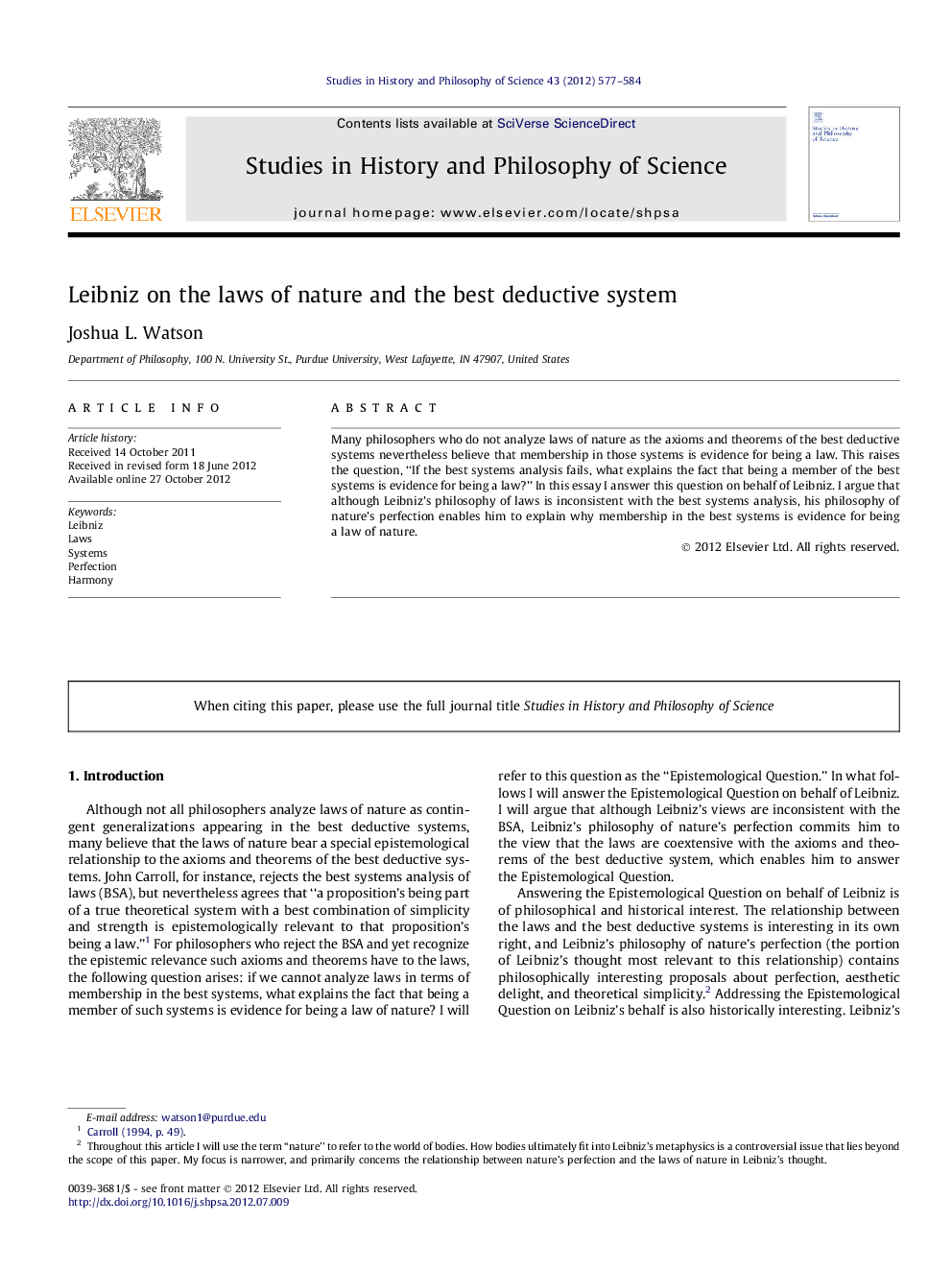| Article ID | Journal | Published Year | Pages | File Type |
|---|---|---|---|---|
| 1160910 | Studies in History and Philosophy of Science Part A | 2012 | 8 Pages |
Many philosophers who do not analyze laws of nature as the axioms and theorems of the best deductive systems nevertheless believe that membership in those systems is evidence for being a law. This raises the question, “If the best systems analysis fails, what explains the fact that being a member of the best systems is evidence for being a law?” In this essay I answer this question on behalf of Leibniz. I argue that although Leibniz’s philosophy of laws is inconsistent with the best systems analysis, his philosophy of nature’s perfection enables him to explain why membership in the best systems is evidence for being a law of nature.
► I explain Leibniz’s account of the relation between laws and deductive systems. ► Leibniz rejects the best systems analysis of laws. ► He incorporates the virtues of that analysis via his theory of nature’s perfection. ► Perfection is comprehending the most via the fewest primitive concepts. ► The truth of the best deductive system is required by nature’s perfection.
